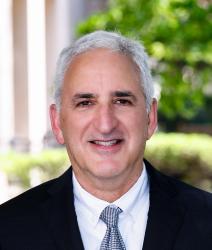2026
The federal tax code has a significant impact on the environment. Fiscal policy is used to encourage as well as discourage various business activities and consumer decisions. Many of these activities affect environmental quality by influencing how much we consume, how we use natural resources, and how much pollution is released into our air and water.
President Bush’s recent call for tax reform and the presence of persistent federal budget deficits provide an opportunity for policymakers to consider changes to the tax code that could lead not only to greater simplicity and fiscal responsibility, but also to improved human and environmental health.
The Urban-Brookings Tax Policy Center, the Brookings Environment and Energy Project, and the World Resources Institute assembled this forum to discuss reforms to the tax code that would be both fiscally prudent and environmentally sound. Panelists will present their views and take questions from the audience following the discussion.
Agenda
-
June 3
-
Discussants
PPPaul Portney President, Resources for the Future -
Moderator
 William G. Gale The Arjay and Frances Fearing Miller Chair in Federal Economic Policy, Senior Fellow - Economic Studies, Urban-Brookings Tax Policy Center
William G. Gale The Arjay and Frances Fearing Miller Chair in Federal Economic Policy, Senior Fellow - Economic Studies, Urban-Brookings Tax Policy Center -
Panelists
CHCraig Hanson Senior Associate, World Resources Institute Gilbert E. Metcalf John DiBiaggio Professor of Citizenship and Public Service and Professor of Economics - Tufts University, Research Associate - National Bureau of Economic Research @GibMetcalfSESteve Ellis Vice President, Taxpayers for Common Sense
Gilbert E. Metcalf John DiBiaggio Professor of Citizenship and Public Service and Professor of Economics - Tufts University, Research Associate - National Bureau of Economic Research @GibMetcalfSESteve Ellis Vice President, Taxpayers for Common Sense
-


